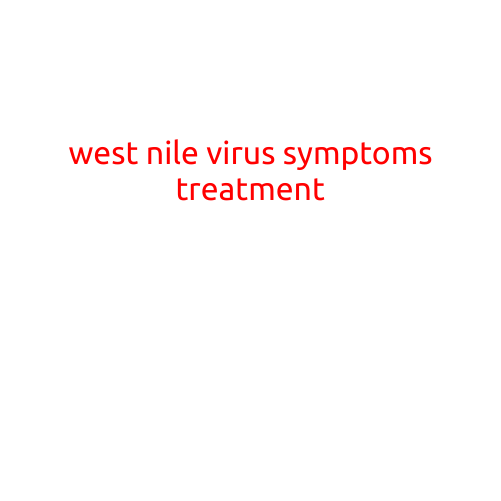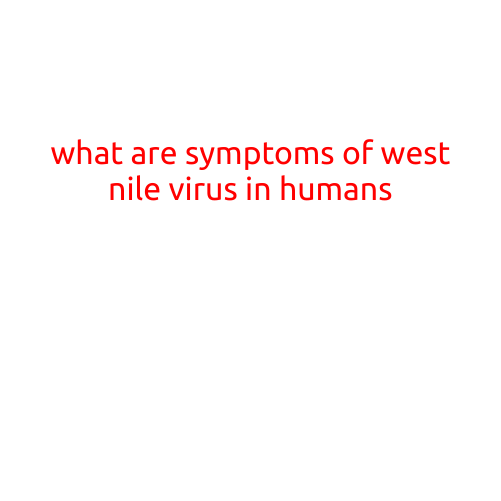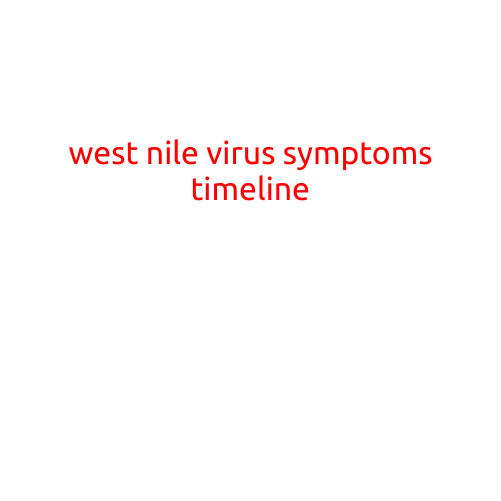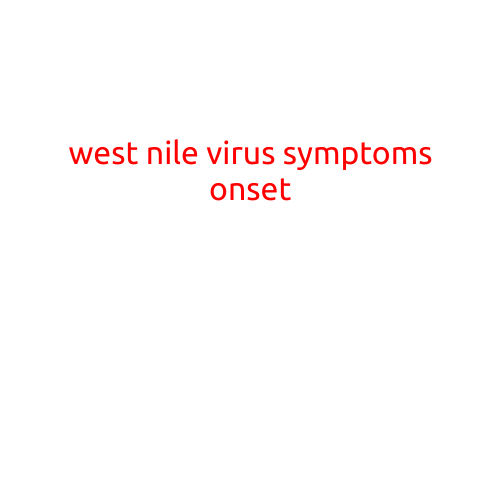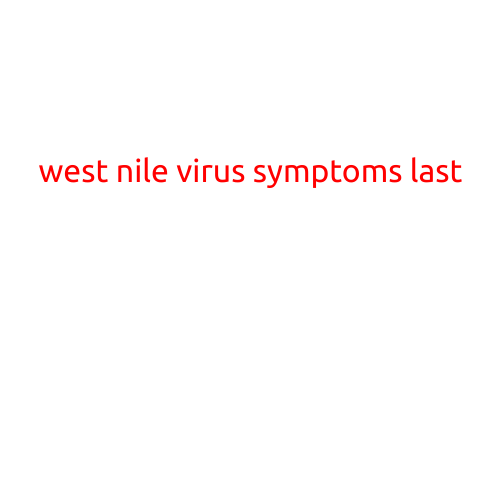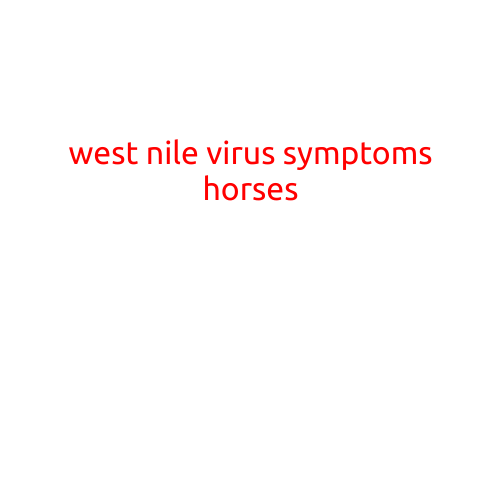
West Nile Virus Symptoms in Horses
West Nile virus (WNV) is a mosquito-borne disease that affects horses, causing a range of symptoms and potentially life-threatening complications. As the virus becomes more prevalent in various parts of the country, it’s essential for horse owners to be aware of the signs and symptoms to take prompt action in the event of an outbreak. In this article, we’ll delve into the common symptoms of West Nile virus in horses, as well as the treatment options and prevention strategies.
Symptoms of West Nile Virus in Horses
The symptoms of WNV in horses can range from mild to severe and depend on various factors, such as the strength of the infection and the effectiveness of the horse’s immune system. The most common symptoms include:
- Fever: A high fever is often one of the first signs of WNV infection in horses. The temperature may rise to over 102°F (39°C).
- Neurological signs: Horses with WNV may exhibit neurological symptoms, such as:
- Ataxia (stumbling or lack of coordination)
- Weakness or paralysis
- Loss of balance
- Convulsions
- Head pressing or circling
- Recurring episodes of mild hypalgesia (reduced sensitivity to pain)
- Eye signs: Horses with WNV may develop ocular problems, such as:
- Enophthalmos (recession of the eyeball)
- Exophthalmos (protrusion of the eyeball)
- Squinting
- Blindness
- Weight loss: WNV-infected horses may experience weight loss due to decreased appetite and altered digestion.
- Lethargy: Horses with WNV may become lethargic and weak, with a lack of interest in their surroundings.
Treatment Options
There is no specific treatment for WNV in horses, but the goal of treatment is to manage the symptoms and support the horse’s immune system. The following measures can be taken:
- Vaccination: The most effective way to prevent WNV infection in horses is through vaccination. Consult a veterinarian to determine the best vaccination strategy for your horses.
- Supportive care: Provide a comfortable environment, with adequate food, water, and shelter. Administer antipyretic medication to manage fever.
- Neurological support: In severe cases, medication may be prescribed to manage neurological symptoms, such as anticonvulsants for seizures or sedatives for nervousness.
- Monitoring: Monitor your horse’s condition regularly, including blood tests and neurological exams, to track the progress of the infection.
Prevention Strategies
Prevention is key to protecting your horses from WNV infection. The following measures can help minimize the risk:
- Vaccination: The WNV vaccine is the most effective way to prevent infection. Consult a veterinarian to determine the best vaccination strategy for your horses.
- Mosquito control: Eliminate breeding sites and reduce the mosquito population by removing standing water, using mosquito repellents, and implementing other control measures.
- Avoidance: Avoid areas with high mosquito activity, especially during peak mosquito hours (dawn and dusk).
- Personal protection: Wear protective clothing, including long sleeves, pants, and a hat, when handling horses or working outdoors.
- Regular monitoring: Regularly inspect your horses for signs of WNV infection, and consult a veterinarian if you notice any suspicious symptoms.
Conclusion
West Nile virus is a potentially devastating disease for horses, but prompt diagnosis and treatment can greatly improve the chances of recovery. As a horse owner, it’s essential to be aware of the symptoms of WNV and take steps to prevent infection. By vaccinating your horses, controlling mosquito populations, and monitoring their condition regularly, you can help protect your equine companions from this serious disease. Consult with a veterinarian to develop a comprehensive plan for the health and well-being of your horses.
